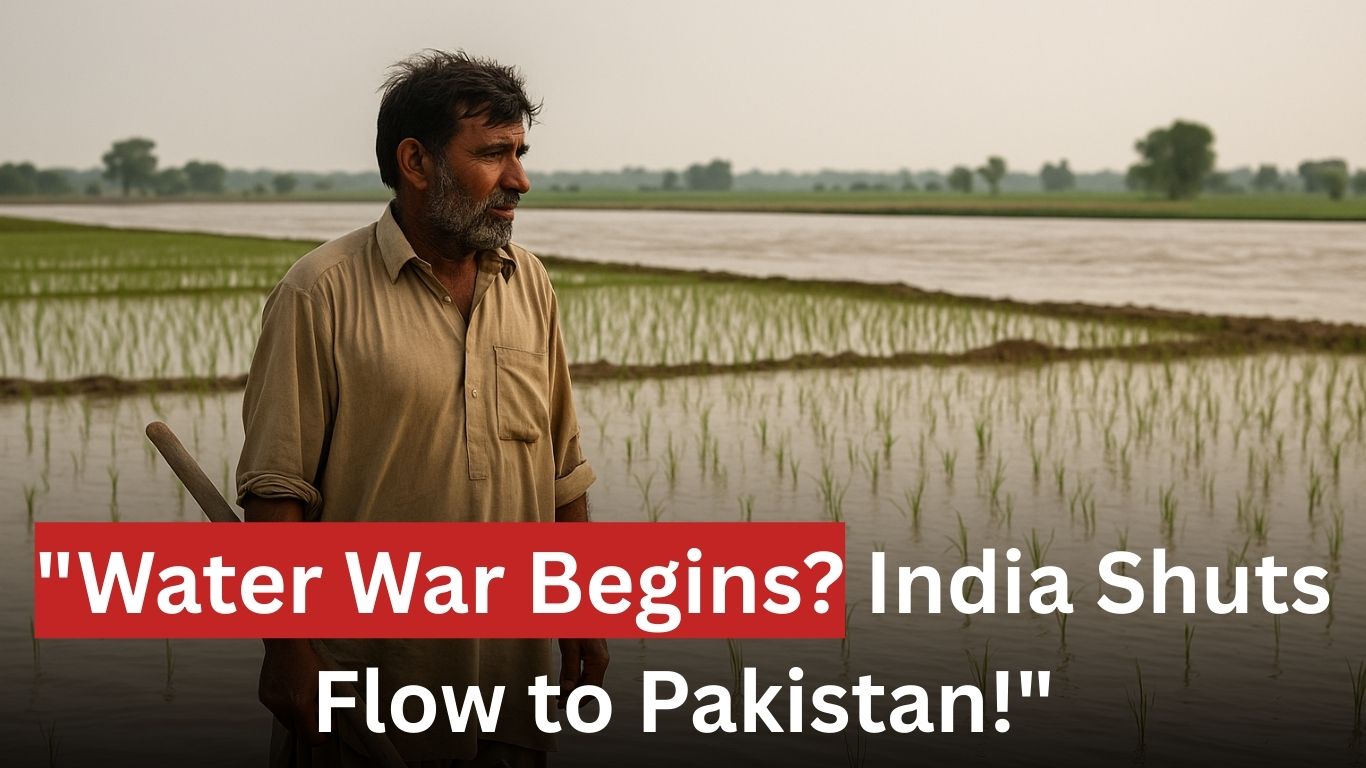India’s Suspension of Water Treaty Puts Pakistan’s Crops in Danger

Islamabad – April 25, 2025:
Tensions between Pakistan and India have escalated after India reportedly suspended key provisions of the Indus Waters Treaty, a critical water-sharing agreement that has been in place for over six decades. The move raises serious concerns for Pakistan’s agriculture sector, which heavily relies on the water flowing from the Indus river system.
The treaty, signed in 1960 with the World Bank as a guarantor, governs the distribution of water from six major rivers in the region. Under the agreement, India controls the eastern rivers (Ravi, Beas, Sutlej), while Pakistan has rights over the western rivers (Indus, Jhelum, Chenab).
Recent reports suggest that India has halted the sharing of vital hydrological data and may limit water flow from upstream dams. This could severely impact irrigation across Pakistan, where nearly 80% of farmland depends on these rivers.
Experts warn that any disruption in water availability could lead to crop failures, food shortages, and increased pressure on underground water reserves. The country’s major hydropower projects like Tarbela and Mangla dams may also suffer reduced inflow, potentially leading to electricity shortages.
The Indian government’s decision is reportedly in response to the Pahalgam incident in Indian-administered Kashmir, which India blames on elements based in Pakistan—a claim that Pakistan strongly denies.
Pakistani authorities have condemned the move, calling it a violation of international commitments and a threat to regional peace. They have urged the global community to intervene and prevent further escalation.
The future of one of the world’s most successful water treaties now hangs in the balance, and the stakes are high—not just for Pakistan’s food security, but for stability in South Asia.









